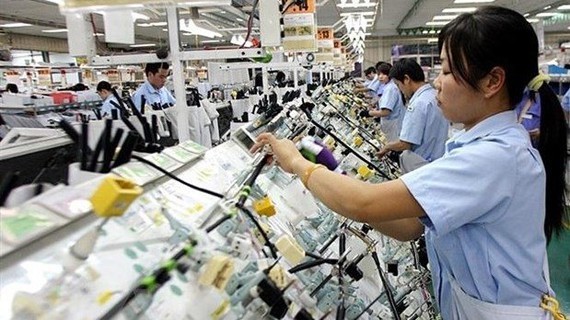
Strain on system
The rapidly increasing number of infections every single day is affecting the medical teams and the whole government apparatus at all levels, which is now extremely strained in its effort to fight off the pandemic. The government apparatus at all levels is now operating above its normal capacity, and the stress and strain is clearly becoming more and more evident as they struggle to save the general population from being infected.
Many businesses that are still running are also suffering as they have had to suspend their operations because some of their workers have been infected with the Covid-19 variant. Businesses are worried that prolonged closure could possibly lead to loss of their customer base. When Vietnamese enterprises cannot maintain production to meet supply orders, customers and business partners in the world will not wait for Vietnam to recover, but will simply move on to the next manufacturer. If Vietnamese suppliers stop production now, the suppliers in China or other countries will readily replace them immediately. This is a fear that is plaguing all manufacturing companies in Vietnam, who will see years of hard work and effort gone in just a few months.
There is a current new plan for production to continue with a three-way method to keep production running smoothly. This plan ensures continuous production if workers continue to live on site during the pandemic, which requires they manufacture, and eat and sleep on site. This new creative method of planning in many localities in Vietnam will allow workers to adapt to the virulent spread of the pandemic. However, not all businesses will be able to apply this solution if the number of workers are too large and the facilities of enterprises is too small.
For many businesses, the pandemic is also not allowing them to control the skyrocketing costs. All expenses for the prevention of the pandemic comes from their business expenses. In addition to the cost of purchasing equipment for pandemic prevention, and offering support and subsidies to workers, there is also the cost of periodic testing. For businesses with thousands of workers, this amount is very large. In the context of skyrocketing input costs, logistics transportation costs are also running sky-high. In this present pandemic situation, business owners are all struggling to survive, and facing a day to day challenge in trying to keep their business running.
Many businesses are now hoping and praying for practical solutions for covering all these extra costs. This support is coming from the state budget for businesses to cover the cost of periodic Covid-19 testing for workers, as well as costs related to pandemic prevention and control. This support is much more helpful than other big-sounding policies, and also very practical and encouraging. The enterprises that are using the most number of workers, are receiving the maximum support from the State, so that they can retain their workers in these difficult times.
Circulation curtailed
Perhaps the most daunting situation for businesses in the context of the pandemic is limited and curtailed circulation. Businesses always need to stay connected and no production or business establishment can survive or flourish in isolation. For production, many types of raw materials are needed, with some being supplied by domestic enterprises, and some being imported from various countries. After manufacturing, products must be transported for sale, and shipped to ports for export.
However, pandemic conditions are becoming increasingly stressful, and many localities have been separated with blockades and lockdowns. In order to travel from one province to another or go to a port in another city, one has to show negative testing results for Covid-19, which is a very laborious and expensive process. There is also no standard procedure either, as validity is some places is for twenty-four hours, some places it is for forty-eight hours, while other places even seventy-two hours.
Some provinces and cities are even asking for a twenty-one-day quarantine period before entering a pandemic affected province, and a driver carrying a shipment to port if quarantined for twenty-one days, will create a heavy back log and delay in shipment delivery. Another menace facing transporters is the recurring traffic jam at the city gateways which is many kilometres long and holds back traffic almost for a whole day, even if the distance can be covered in just a few hours.
Many businesses sincerely wish and hope for a unified and consistent transportation process that is well coordinated among all localities. Transport is the life line for logistics and the moving of goods from one place to another. It is understandable that this new pandemic situation is unfamiliar ground for the State to handle, and causing much serious concerns for all authorities who are struggling to ward off its effects. However, now the pandemic is in its second year, and urgent and decisive measures need to be put in place. The current situation is still rather confusing, and it is time that transport drivers, and all people who need to constantly be in circulation must be considered on a priority for vaccination, so that the whole production machinery starts to operate once again.
























